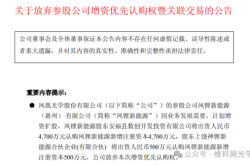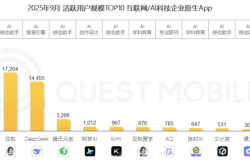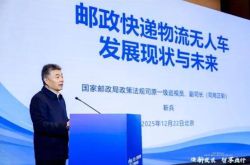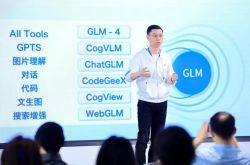Tencent's 'Lack of Romance'
![]() 03/20 2025
03/20 2025
![]() 611
611
This article is crafted based on public information for the sole purpose of information exchange and does not constitute investment advice.

The entire market eagerly anticipates Tencent's annual report. However, the focus isn't on the 2024 performance metrics; it's on the anticipated AI capital expenditures for 2025 and beyond. With the advent of DeepSeek, it feels like "the old world is crumbling, while the new world arrives at light speed."
Regarding DeepSeek, some have hailed it as a potential national-level scientific achievement. However, the term "national-level" has been overused in recent years, and amidst the economic downturn, most people have grown indifferent to grandiose claims. As a result, after the initial excitement, public interest waned. The world, be it old or new, often seems indifferent to such changes until the tide has already turned.
But how could it truly be irrelevant? We all feel the pinch; the economy has been challenging for the past few years. Many fear we're heading towards a worrisome deflationary spiral. Japan serves as a cautionary tale, where during such cycles, almost all capital expenditure activities appear futile.
Apart from natural liquidation, the only thing that can disrupt this spiral is a technological revolution. Understanding this logic also helps grasp the significance of the statement, "it may be a national-level scientific achievement."
If AI is the new fortune of this fractured world, then DeepSeek is indeed our national treasure.
As the cornerstone, DeepSeek has laid the groundwork for effective capital expenditure spanning a 60-year Kondratieff cycle—from individuals to industries, sectors, and ultimately the nation. This foundation, in essence, is confidence. The confidence that "confidence is more precious than gold." A non-open-source GPT is not a steam engine; an open-source DeepSeek is. In other words, with DeepSeek as the initial cornerstone, China has officially embarked on a new round of capital expenditure. This was unthinkable before 2025. The year 2025 marks a pivotal point in the economic cycle. One cannot help but admire the foresight of the old guard: Alibaba was the first to announce that "it will invest over 380 billion yuan in AI infrastructure over the next three years." In reality, the only flagship companies with the capacity and influence to lead this capital expenditure cycle are the three major operators, along with Alibaba, Tencent, and ByteDance.
Among these platform economy giants, even Xiaomi, which has fared relatively well, is still grappling with losses from car manufacturing, showing signs of being overwhelmed. On the operator front, following Alibaba, China Unicom also took the lead during this week's earnings report, announcing a special budget that will increase capital expenditures on computing power by 28% in 2025, with expected fixed asset investments reaching 55 billion yuan. Among the three tech giants, ByteDance is more aggressive than Alibaba, often acting decisively with little fanfare. Over the past three years, it has been "crazy" in its investment in computing power, acquiring all available resources. Regarding bets on foundational models, facing DeepSeek, it has yet to throw in the towel, seemingly determined to go all in on its own AI initiatives. Increasing AI capital expenditures means increasing one's stake in China; they are interdependent.
This is because it represents the most feasible path to breaking the current economic cycle dilemma—even if it may ultimately turn into a bubble. Some cyclical bubbles result in value destruction, but in this cycle, the bubble signifies more industries and individual livelihoods being uplifted.
Moreover, fortune favors the bold, but not always. This is effective capital expenditure grounded in a new scientific framework. Apart from AI, can we still rely on real estate, the internet, or games?
Once the first step is taken, everything progresses in tandem. There's no such thing as the rise of the East and the fall of the West. It's just that at this juncture, our narrative flows smoother, aligns better with economic laws and common sense, and is more likely to yield higher returns on investment. With this logic, it's easy to see why we say "the entire market is waiting for Tencent's annual report." However, Tencent is "unromantic." Its stable financial report continues to portray a picture of high-quality growth. But regarding capital expenditure expectations, it remains relatively moderate.
During the earnings call, when faced with related questions, some executives were even more cautious, preferring to reassure investors about concerns over the "collapse of the old world." For instance, they repeatedly explained how to ensure that new capital expenditures won't turn into additional depreciation in the future. It's not hard to understand why Tencent, with its stable and dignified demeanor as a company worth over 4 trillion yuan, is favored by big money. It's even understandable that, due to the rivalry between Tencent and Alibaba, Tencent isn't willing to bow completely to DeepSeek; it still wants to give its internal teams time to wait for their own "T" moment before making a grand announcement. This moment could belong to Yuanbao or some other AI application, just like in the past, it could have belonged to QQ or WeChat. But no matter how much we analyze, we still can't deny Tencent's "unromantic" side. Admittedly, we can't overinterpret Tencent based solely on one financial report. Compared to its cautious and unromantic stance, Tencent's actions are actually unequivocal:
In the last quarter of 2024, Tencent's quarterly capital expenditure was 36.6 billion yuan, a year-on-year surge of 386%, almost equivalent to the sum of the previous three quarters. Furthermore, Martin Lau made a meaningful promise to the market: Tencent can simultaneously support future-oriented AI investments and current shareholder returns.
Although it lacks a bit of romance, it cannot conceal its dominant presence—in today's market, how many companies can address the concerns of both the old and new worlds with just one sentence?
Tencent's "unromantic" AI strategy and the year 2025 are even more anticipated.







